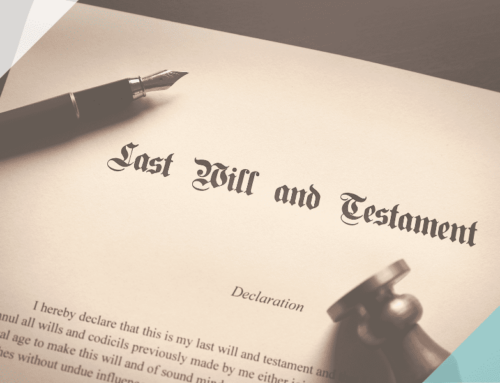The case of Smith V Ganning [2022], which has not yet been reported, highlights the significance of ensuring that wills are lawfully executed in accordance with the Wills Act 1837 (“the Act”).
In this case, Alison Ganning passed away on the 5th of May 2016, leaving behind a homemade will that gifted her entire estate to her husband, Michael which was dated as 5th of April. However, her daughter, Laura, argued that the will had not been validly executed as her mother had only signed it in the presence of one witness. Laura, therefore, sought a determination that her mother had died intestate, which would entitle her and her brother to a share of the estate.
Michael disagreed with her and following a long delay, Laura issued proceedings in May 2021 to challenge the will’s validity.
According to Section 9 of the Act, specifies that a will is not valid unless:
(a) It is in writing, signed by the testator or attested by witnesses who acknowledge their signatures and
(b) There is evidence that the testator had the intention of carrying out the will by signing it;
(c) The signature is either made or acknowledged by the testator with the intention of carrying out the will;
(d) Each witness either:
(i) Signs the will as a witness; or
(ii) Acknowledges his or her signature in front of the testator (although not necessarily in front of any other witness). There is no need for any specific form of attestation.
The will had apparently been signed by two witnesses named Kathryn Weaver and Dawn Wilson, but there was a discrepancy in their accounts. Laura claimed that only Kathryn had witnessed her mother’s signature on the will and that Dawn had added her signature later on. Laura also stated that she herself had not witnessed her mother sign the will.
Conversely, Michael gave evidence stating that on April 5th, 2016, Mrs Ganning had signed the will along with the two witnesses while she was a patient at Christie’s hospital. He argued that he was also present during the signing of the will.
Both witnesses, in this case, gave evidence during the trial.
Dawn Wilson, who lived next door to the Gannings at the time of execution, testified that she signed the will in the kitchen of the Gannings’ house in the presence of Michael, but Alison wasn’t. She confirmed that she saw the other witness, Kathryn Weaver’s, signature already added. Kathryn, on the other hand, testified that Alison signed the will in her presence during a hospital visit, and that only she and the Gannings were present. Dawn was not present, and the space for her signature was empty.
Although a will that appears to have been executed in accordance with the Wills Act 1837 is presumed to have been properly executed, this presumption can be challenged if there is evidence that the execution was not valid. In this particular case, the judge favoured the testimony of the two independent witnesses over Michael’s, who had a stake in the outcome of the proceedings. The witnesses provided consistent and clear evidence regarding the circumstances of the signing and witnessing of the will, and there was no indication of collusion between them or with Laura. Given the compelling and straightforward testimony of the witnesses on this critical issue, the judge concluded that the presumption had been successfully rebutted.
The judge ruled that due to the circumstances, the will had not been carried out in accordance with the formalities outlined in the Act, rendering it invalid. As a result, the 2016 will was disallowed, and the grant of probate was revoked, leading to Mrs Ganning being deemed intestate. The judge also ordered the appointment of a new personal representative but deferred the decision on the person’s identity to a later date. The court decided that neither Laura nor Michael should be appointed.
Ensuring compliance with the formalities of the Act during the execution of wills is crucial, as highlighted by this case. Even if a will seems valid at first glance, doubts about its validity should prompt a challenge to its due execution.
If you need legal support in this area, email Edward.powell@attwells.com





